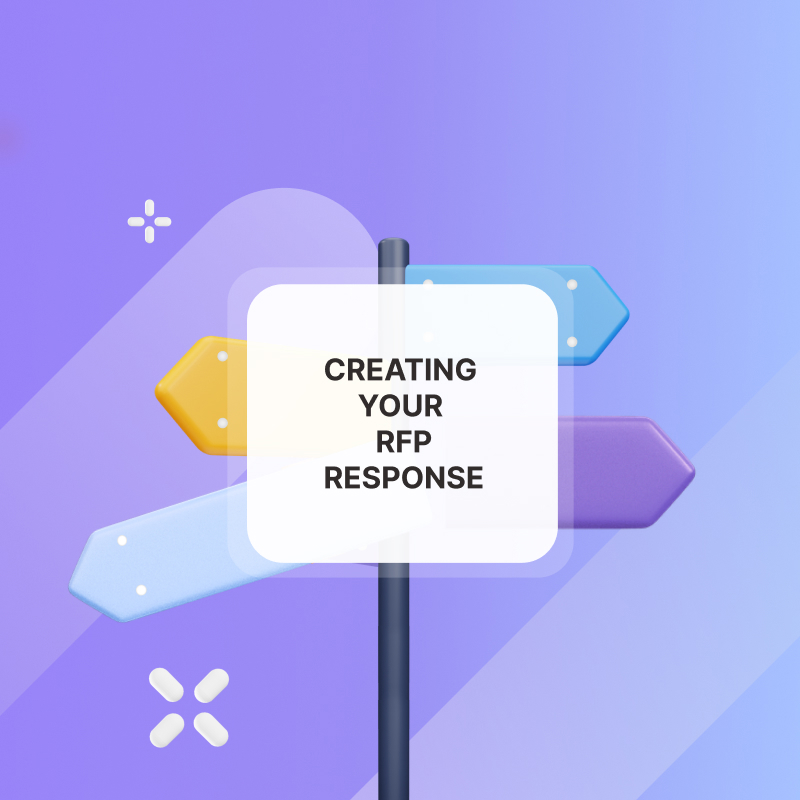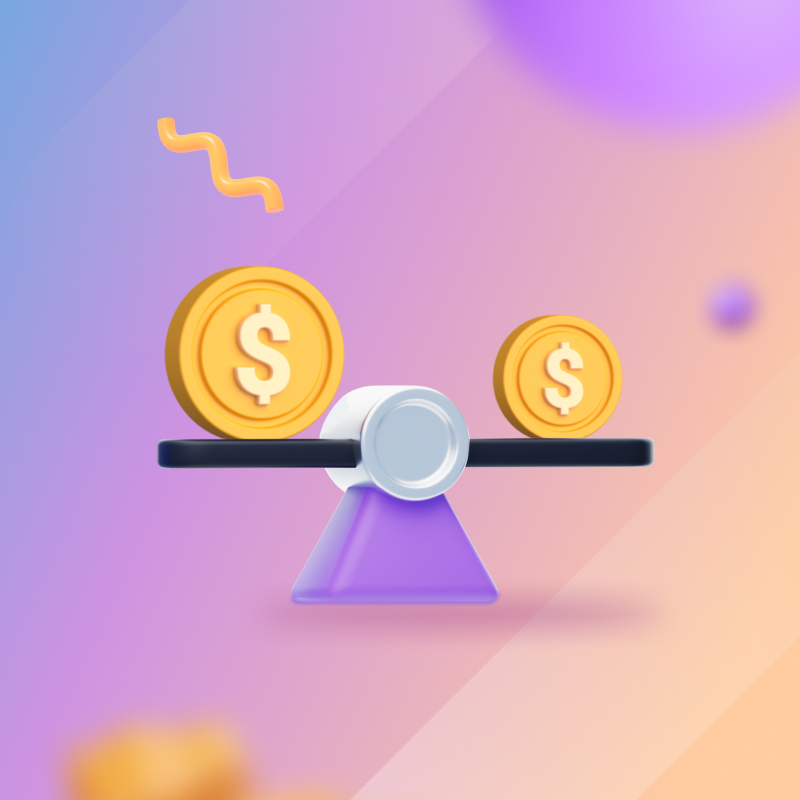
In B2B sales, every interaction with a customer counts. These interactions directly or indirectly provide insight into the customer’s pain points and which solutions they are looking for.
Therefore, it is important to gather, analyse, and make sense of these interactions to enable informed decisions on sales processes.
What is Sales Intelligence
Sales intelligence means gathering and analysing data obtained from interactions with customers to improve the lead generation, qualification, nurturing and closing stages of the sales cycle
Importance of Sales Intelligence
1. Detailed Market Insight: Gathering and analysing customer behaviour information helps you identify trends and make informed decisions.
If you want to expand to other markets, these insights will also enable you to identify new target audiences by comparing them with existing prospect behaviour.
2. More efficient Sales Strategy:
Sales intelligence enables sales teams to identify potential roadblocks in the sales process, determine leads that are likely to convert and channel their efforts and resources accurately.
3. Enhanced Productivity:
Sales intelligence usually involves the use of AI which is useful for automating repetitive tasks like notification and reminders for prospects and sales teams according to their interactions. This enables automated but personalised nurturing for prospects.
4. Informed Prospecting:
Sales data and intelligence make it easy to identify your ideal customers. For example, you can use demographics and the buying behaviour of prospects in successful deals to define ideal customers.
5. Automated business processes:
Sales intelligence tools usually integrate with other tools to automate business processes. For example, tools like Hubforce integrate well with tools like Loom. So instead of recording a sales video separately and attaching a different link, the recording can be done and centralised along with other sales materials
6. Data-Driven Selling:
Sales intelligence tools ensure that sales teams are not following up on prospects based on assumptions. It also suggests what your sales team can do to accelerate the sales process.
For example, if the economic buyer visits your proposal page, sales intelligence tools can show you how long they have spent on the page and also suggest follow-up actions like sending them an ROI calculator. This helps you to handle objections or questions before they arise.
7. Data-Driven Decision-Making Across Teams:
Data collected from sales intelligence tools does not only benefit the sales team. Revops, sales leaders and even customer support teams can use it to make informed decisions that impact revenue, sales and customer retention. They can leverage this data to optimize their efforts and operations.
8. Improved Sales Forecasting Accuracy:
Sales intelligence provides historical data and recent trends based on real-time prospect interactions which can help businesses to develop more accurate sales forecasts and manage expectations.
How to Improve Your Sales Approach With Sales Intelligence Tools.
1.Define ideal personas:
Use sales intelligence tools to gather data and analyse customer needs and behaviour.
2. Segment Your Audience:
Based on data gathered from your sales intelligence, you can categorise prospects into different groups. This enables you to tailor your pitch or demo to their buying needs at different stages of the sales cycle
3. Create personalised experiences:
Tools like Hubforce enable you to create personalised digital sales rooms for prospects. These rooms are private and serve as a collaborative sales workspace for sales teams and prospects. You can track prospect engagement and behaviour in real-time. Personalised rooms enable you to easily analyse data without being overwhelmed.
4. Track real-time data:
Great sales intelligence tools allow you to track prospects' real-time engagement in the buying process. This provides valuable insights into customer behaviour, preferences, and needs.
5. Prioritise High-Value Prospects:
Sales intelligence can also analyse lead behaviours, revealing their likelihood to convert. This will help you prioritise your efforts and focus on the most promising opportunities. You can also identify opportunities to upsell or cross-sell complementary products or services that address their broader needs.
Benefits of Sales Intelligence Tools for Multithreading
1. Identifying Stakeholders: Sales intelligence tools like Apollo.io help to identify the key stakeholders within a target organisation.
2. Engaging Multiple Stakeholders: Tools like Hubforce enable you to see how many stakeholders visited your digital sales room and what content they are looking at.
You can use their priorities to map out what kind of decision-makers they are and prompt related leaders in your team to connect with them.
3. Tailoring Your Approach: Data from sales intelligence tools will be used to understand the needs and preferences of each stakeholder. This will help you to highlight specific benefits of your product that relate to their roles ensuring that each decision-maker understands the value proposition of your solution according to their priorities.
4. Accelerating Decision-Making: Centralising stakeholder interactions ensures that all decision-makers are aligned and up-to-date. If anyone joined the buying process late, they could immediately catch up because all sales materials, calls and interactions are centralised in one source of truth. This eliminates confusion.
The faster decision-makers can align, the faster buying decisions are made.
5. Mitigating Risk: By identifying multiple stakeholders and spreading the engagement across, you can reduce the risk of relying solely on one contact.
Tools for Sales Intelligence
1. Hubforce: Hubforce leverages artificial intelligence to enable you to save 30% of sales costs by automating the creation of personalised sales presentations. It also enables you to track real-time prospect engagement with your sales presentations and identify silent buying signals. Hubforce AI suggests strategic follow-up based on the data gathered from the prospect's engagement.
2. Cognism: Cognism is a sales intelligence software that enables you to reach out to your ideal clients through verified mobile numbers, direct dials, and business emails.
3. LinkedIn Sales Navigator: LinkedIn Sales Navigator provides advanced search and filtering options for LinkedIn outreach.
4. Apollo.io: Apollo.io is a sales data intelligence platform that provides prospect contact information so you can reach them more effectively. It provides contact information like LinkedIn profiles, phone numbers and email addresses. You can also filter your target audience based on a variety of factors like employee size, funding stage, or leadership position.
5. Crunchbase: Crunchbase provides comprehensive information about companies and their key stakeholders like founders, co-founders and investors.
6. Gong: Gong is a revenue intelligence tool that provides insights into sales performance and customer interactions.
7. HubSpot: HubSpot is a CRM tool for businesses that enables sales teams to manage customer data. CRMs are usually more effective when integrated with digital sales rooms. This enables the CRMs to access accurate data so that sales teams can make more informed decisions.
Leveraging Hubforce for Sales Intelligence
Hubforce leverages artificial intelligence to enable you to create personalised digital sales rooms called hubs. They are tailored to the priorities of your prospects.
These digital sales rooms enable you to centralise all sales materials according to the priorities of stakeholders.
You can track real-time prospect engagement and get strategic follow-up action triggers from Hubforce AI.
Hubforce analytics provides you with full details of your buyer’s behaviour and preferences.
For example, you can see the following
- Who viewed your proposal or other sales content?
- How long was spent viewing each content? Longer reading time indicates interest
- If they downloaded your content
- If the content was shared and to whom it was shared
- Open rate
- Last active time for users
- Unique visits
You can leverage this data to identify behavioural patterns, score leads and identify the ones that are more likely to close. It also enables you to anticipate objections and tackle them before they arise.
You can create your first 5 hubs for free
or
Request a demo here
















